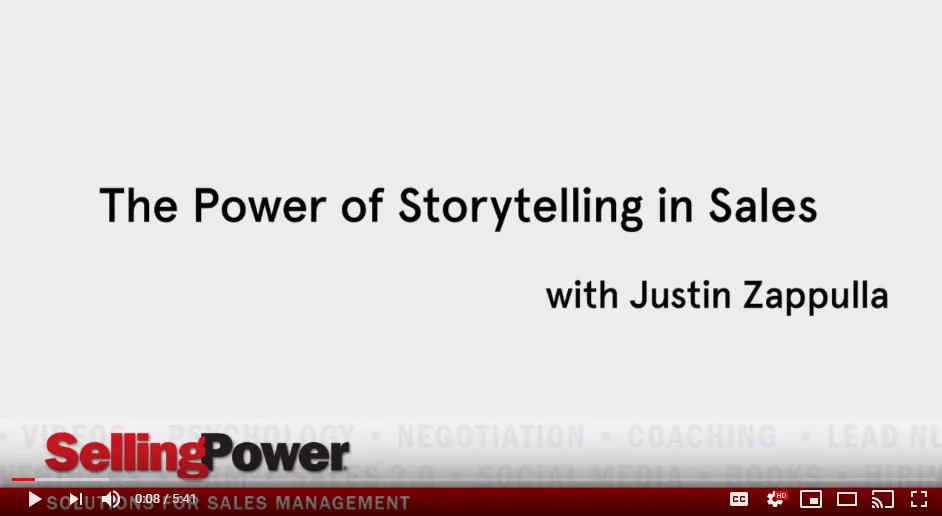How Analysis Paralysis Can Hurt Your Sales and Productivity

We are overwhelmed with information and choices in today’s digital world. The Internet age has simultaneously given us the blessing of access to knowledge and the curse of being aware of so much, that we sometimes don’t know what to think or do. The sales world is no exception, oftentimes freezing buyers and sellers into inertia, stuck in the endless thought loop of analysis paralysis. But there’s ways of breaking the stasis.
Before we continue, we’d like to point out that we’re not suggesting jumping immediately into decisions or discarding the natural hesitation that comes with careful contemplation. After all, Napoleon’s early career was marked by successes precisely because of prudent deliberation, and on the flip side, acting too quickly can have disastrous consequences, such as when Liu Bei, angered by the murder of his blood brother, Guan Yu, invaded the kingdom of Wu without enough supplies in the Chinese classic Romance of the Three Kingdoms, to disastrous results for his kingdom of Shu.
What we mean here is being so caught up in choices and possibilities that we constantly analyze, think, and rethink – to the point where we stall out completely, potentially missing opportunities or getting so bogged down in the finer details that we miss the more important, larger picture.
The Costs of Analysis Paralysis
There are numerous costs associated with analysis paralysis beyond lost time – much of it surprisingly rooted in neuroscience. To cite a pair of examples:
- Lowered performance on creativity
Researchers at Stanford University conducted an experiment that asked participants to draw pictures based on action words and found that the less they thought about what they were drawing, the more creative those drawings were. Conversely, the drawings deemed most difficult to produce drew resources from the thinking part of the brain and led to less creative drawings. This is also why so many graphic designers, copywriters, and other creatives in businesses aren’t as reliant on logic as, say, the accounting department – too much thinking can hurt the end product, and in turn, your organization by producing poorer quality content and collateral. - Decrease in willpower
The National Academy of Science studied the decisions of parole board judges over a 10-month period. What they discovered, much to their shock, was that judges were statistically more significant to grant parole in the morning and after lunch, and statistically far more likely to deny parole at the end of a session – irrespective of the severity of the original crime or the petitioner’s circumstances. Essentially, this phenomenon was explained by decision fatigue – the more decisions the judges had to make, the less energy and willpower they had to go through the decision-making process, and so took the easier route.In terms of analysis paralysis, spending energy and willpower overthinking a decision that needs to be made leaves you less and less energy and will to make a choice, so you or your prospect opts out of making a decision to preserve that lowered energy.
How Sales Reps Unintentionally Create Analysis Paralysis
As sales professionals, we want to make sure we meet the needs of customers so that we can become trusted advisors. But sometimes, in a rush to be sure we fulfill those needs, we overload the customer with too much information and too many options. The customer is then left dizzy, dazed and confused, and backs away from us, eventually later choosing someone who simplified their options and was not overwhelming.
Overcoming Analysis Paralysis
You’ve probably already gleaned this from our discussion above, but the single most common and easiest option to head off analysis paralysis is to paradoxically limit information and present a smaller, tailored set of choices. With less to consider, making a decision becomes much easier – which is one of the reasons (beyond technology) that your eye doctor asks you “One?” “Or Two?” “One?” “Or Two?”. In that sequence, you’re being asked to look at three different settings of lenses, but because it’s presented as a binary choice, you can make a decision quicker and more easily.
Now you’re probably wondering how to figure out how to know which essential information and choices to provide your customer. Go back to the core of sales best practices and ask qualifying questions to narrow down the specific needs of your customer. If they have lots of different needs, or if you genuinely have a wide array of solutions that could meet those needs, dig deeper – consider asking them to rank their most important needs, for example. We discuss the importance of helping a customer identify their priorities as part of our our Critical Selling Skills program. That way you can pare down your suggestions to those that best serve the most critical needs.
If you yourself are dealing with analysis paralysis, talk it out with someone whose opinion you trust and who won’t just tell you what to do. That last part is vital, because to truly feel comfortable with a difficult choice, you need to make it yourself. Discussion with a trusted person as a sounding board can illuminate the benefits and drawbacks of each choice, shed light on important angles and factors you might not have considered, and reveal your own priorities and how they align with the various paths you have in front of you.
Analysis paralysis is real and potentially costly from a time, money, and energy standpoint. But if you recognize it for what it is and take the above steps to help limit its occurrence, you can avoid that trap and make the best choices for you and your customers’ situations.

- Account Planning (11)
- Awards (49)
- Client Testimonial (37)
- Personal Branding (19)
- Podcast (11)
- Research (70)
- Sales Career Development (87)
- Sales Coaching (156)
- Sales Consulting (137)
- Sales Culture (170)
- Sales Enablement (354)
- Sales Leadership (109)
- Sales Management (248)
- Sales Negotiation (16)
- Sales Prospecting (125)
- Sales Role-Playing (18)
- Sales Training (235)
- Selling Strategies (263)
- Soft Skills (70)
- Talent Management (94)
- Trusted Advisor (27)
- Virtual Selling (49)
- Webinar (9)


























